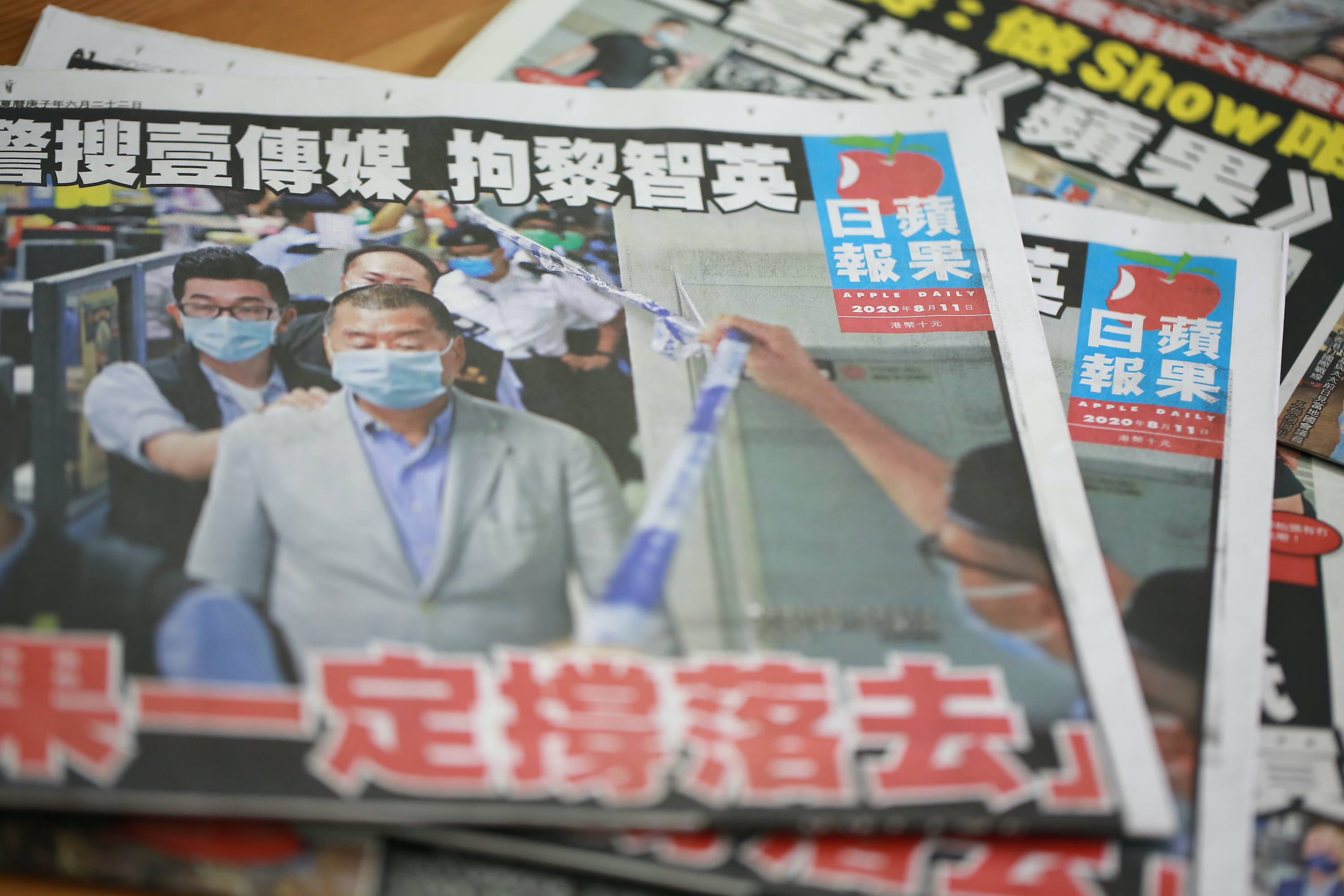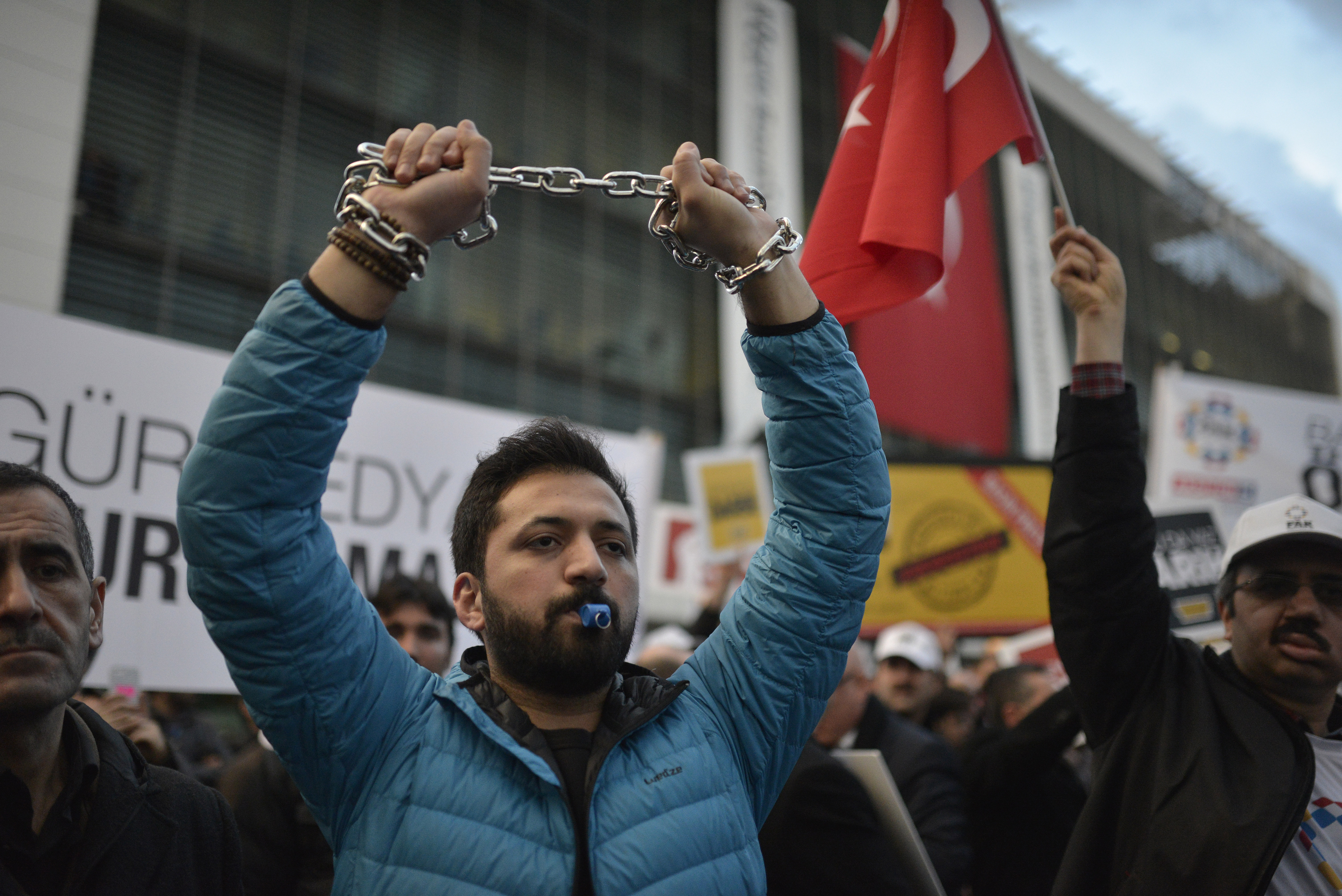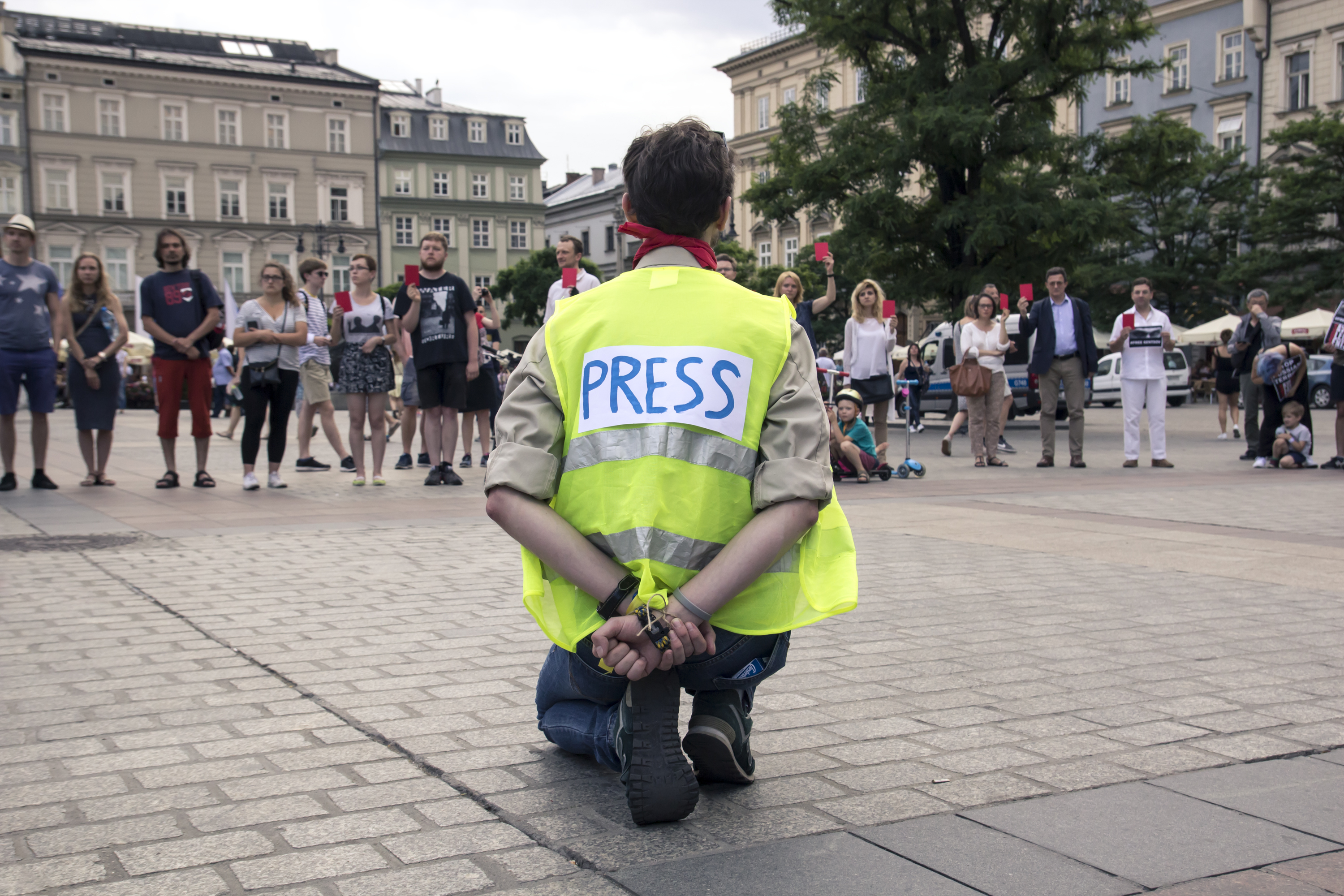Populist leaders always go after those that are exposing what they’re doing. They don’t like acts of opposition. They don’t like free media and journalists who expose corruption, who expose human rights abuse, who expose the ways in which power is being accumulated. They try to close down media enterprises that oppose them. We’ve just seen it in Hong Kong, with the arrest of Jimmy Lai – a media tycoon who owns a number of television stations and who’s very publicly pro-democracy. The idea is to silence opposition.
The threats to media freedom
Barrister, Bonavero Institute of Human Rights, University of Oxford.
- Populist leaders don’t like acts of opposition. They don’t like free media and journalists who expose corruption, human rights abuse, or the ways in which power is being accumulated.
- In the last few years, we’ve seen 200 journalists killed. We’re not talking about foreign correspondents in places of conflict but people who are murdered because of the things they’re exposing.
- The unregulated nature of social media is such that people provide information which is not well founded. They create conspiracy theories circulated by a new medium which is not fact-based and does not speak truth to power, and which is used in a very calculated way by those who are powerful.
Active citizens need knowledge
One of the things that’s so fundamental to decent society, to a good democracy that works well, is an independent and free media. You have to have an independent media in order to really know what’s going on – a media that will expose corruption, that will inform people about abuse of rights and that will let us know what is happening to our fellow citizens. People need knowledge to be active citizens. This is not delivered by the State-owned media, because they tell the story as they want it to be told. As a citizen, you need narratives from every different source so that you can piece it together, to know what is happening. As a lawyer and someone who heads an institute of human rights, I strongly believe that if you don’t protect journalists and a free media, your society is in serious trouble.

Photo by Lewis Tse Pui Lung
What is happening to journalists who speak out?
It’s really important to protect that part of our social ecosystem. A lot of our work at the institute of human rights is on the subject of protecting media freedom. In places like Hungary, you get your friends to buy up the media enterprises. You arrest and close down sources of information to the general public. Huge numbers of journalists have been arrested in Turkey, Mexico, the Philippines. In the last few years, we’ve seen 200 journalists killed. We’re not talking about places of conflict where brave foreign correspondents get caught in the crossfire but people who are targeted and murdered because of the things they’re exposing. We have Daphne Caruana Galizia in Malta. A man has recently been convicted of putting a bomb under her car. She was exposing corruption of a serious kind and was involved in the Panama Papers case.
What happened to Jamal Khashoggi?
I was part of the team who went with the United Nations rapporteur to Turkey, to hear the evidence that had been gathered by Turkish intelligence about that extrajudicial killing – one of those gross crimes in which you don’t have an enemy and you decide that you are just going to eliminate someone.
To hear what happened to Jamal Khashoggi, to hear a man of great substance going into a place thinking he was collecting papers from his embassy or consulate and then realising that he was either going to be tortured or that he was going to be extinguished was utterly shocking. The international community is doing very little about it because the United Nations knows that it was not careful. You will have a peeling away of those nations which do not want to be part of an international order.
We really have to think about what’s happening to journalists. We had the young woman laying on a quay in Northern Ireland, shot dead for writing about paramilitary organisations. Journalists are in the firing line because they are speaking truth to power.
Why aren’t we protecting our journalists?

Photo by Orlok
The people who represent the journalists come under fire, too. In Turkey, thousands of judges have been taken out of office, many of them thrown in prison. The same thing is happening to lawyers in Turkey, intellectuals, journalists, any of those people who are seen as being critical of the government and of the ErdoÄŸan regime. So, how do you protect journalists and other free media? One of the things you have to do is to give teeth to international law.
After the Second World War, we created international entities, which have now outgrown their relevance today – one being the Security Council. It was a special body of the most powerful nations which existed after the Second World War and special powers were given to them with regard to processes in this sort of world order. We know who those nations are: China, the former Soviet Union (now Russia), the United States, the UK, France. They were given veto powers to prevent certain things happening, and it was thought that it would be with the goodwill of the world in mind. Those veto powers are often operated in a way that takes the teeth out of international law, preventing cases going to the International Court of Justice, preventing cases being tried and preventing reform. So, we’re having to look for other ways of giving teeth to international law.
How have veto powers been overridden?
One of the things that has been traditionally used is sanctions – sanctions against Iran, sanctions against Russia now, because of its behaviour towards Ukraine. The problem with those kinds of sanctions introduced at that time is that they are felt most by the ordinary people of a nation, and then the narrative is given to the citizens that these people in the West are doing this to us and that to us and so on.
What has now been developed is the whole idea of targeted sanctions, where you go after the most powerful – the people who have huge assets, which they take out of the nation, often impoverishing their own citizens in doing so. The oligarchs of Russia, the party leaders in China, buying apartments in Britain or Manhattan or the south of France, getting their assets out of their own countries and enriching themselves so that should the going get tough, they have somewhere else to go. Taking advantage of visas to travel readily, to have their children educated in other parts of the world in independent schools, the grand schools of Britain or at universities like Harvard and Oxbridge.
There are great advantages to being rich and powerful, so if one could go after the rich and powerful, then that would be one of the things to do.
What is Magnitsky Law?
Bill Browder, a very successful banker, was in Russia doing business when he was brought before Putin’s courts in relation to taxation matters. He instructed a commercial lawyer to act for him and that lawyer ended up dead in a Russian prison. Absolutely devastated by what had happened to his lawyer and by the impunity enjoyed by the powerful, Browder set up what’s called Magnitsky Law. He argued for the nations of the world – and he’s still campaigning for this, a banker turned human rights activist – to basically sanction the people who made that happen – the judges, the heads of the prison system and so on that led Sergei Magnitsky to his death. Magnitsky Law now operates in the United States, Canada and the United Kingdom. The European Union has voted it into being, Japan is now looking at it and it’s spreading to many parts of the world.
It’s about going after the people who allow these incredible abuses of international law and human rights to take place. We have to use it in relation to the protection of journalists and the protection of the media. One of the things that we’re doing now is creating mechanisms which can be used to hold nations to account using targeted sanctions, using other processes and creating proper investigatory entities when media freedom is being brought to its knees.
The threats to media freedom in Western democracies

Photo by Bogdan Khmelnytskyi
One of the things that should be alarming all of us in Western democracies is an undermining of factual material. Responsible for this, of course, are politicians who deride the media, who accuse anyone who criticises them of fabricating fake news. We have the whole business of abusing social media to undermine proper journalism and truth telling.
Here in the United Kingdom, the media have referred to our judges as enemies of the people and those words are also used about the media. Donald Trump, as President of the United States, spoke about the media and established newspapers and television channels as being enemies of the people. That way of creating distrust and a lack of confidence in information that people are getting is one of the ways in which you can undermine the media.
Social media has a great deal to answer for. The unregulated nature of social media, which ushered in self-created journalists who were not reliant upon working for newspapers, is such that people provide information which is not well founded. They create conspiracy theories circulated by a new medium which is not fact-based and does not speak truth to power, and which is used in a very calculated way by those who are powerful.
Discover more about
media freedom
Kennedy, H. (2004). Just Law: The Changing Face of Justice – and Why It Matters to Us All. Vintage.
Kennedy, H. (2004). Legal Conundrums in our Brave New World (Hamlyn Lectures). Sweet & Maxwell.